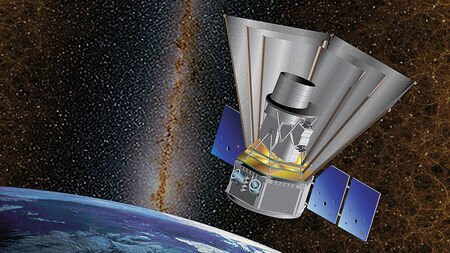Telescope to Explore Origins of Universe: SPHEREx | 15 Feb 2019
NASA will launch a new space telescope mission Spectro-Photometer for the History of the Universe, Epoch of Reionization and Ices Explorer (SPHEREx) in 2023.
- The launch could help astronomers understand how the Universe evolved in the first place and how common the ingredients for life are within it.
Missions’ Objective
- SPHEREx will survey the sky in optical as well as near-infrared light.
- Astronomers will use the mission to gather data on more than 300 million galaxies, as well as more than 100 million stars in Milky Way.
- The mission will create a map of the entire sky in 96 different colour bands.
Significance
- SPHEREx's main goal is to search for the fundamentals of life — water and organic matter within the Milky Way.
- Beyond Milky Way, it will also be looking at the wider regions of the universe, where stars are born.
- This will give scientists targets for more detailed study in future missions, like NASA’s James Webb Space Telescope and Wide-Field Infrared Survey Telescope.
- It will deliver an unprecedented galactic map containing 'fingerprints' from the first moments in the universe's history.
- It will provide new clues to one of the greatest mysteries in science that what made the universe expand so quickly less than a nanosecond after the Big Bang.
James Webb Space Telescope
- The James Webb Space Telescope (also called JWST or Webb) will be a large infrared telescope with a 6.5-meter primary mirror. The telescope will be launched on an Ariane 5 rocket from French Guiana in 2021.
- It will study every phase in the history of our Universe, ranging from the first luminous glows after the Big Bang, to the formation of solar systems capable of supporting life on planets like Earth, to the evolution of our own Solar System.
- Webb is an international collaboration between NASA, the European Space Agency (ESA), and the Canadian Space Agency (CSA).
Wide Field Infrared Survey Telescope (WFIRST)
- WFIRST is a NASA mission designed to study dark energy, perform galactic and extragalactic surveys, and explore exoplanets.
